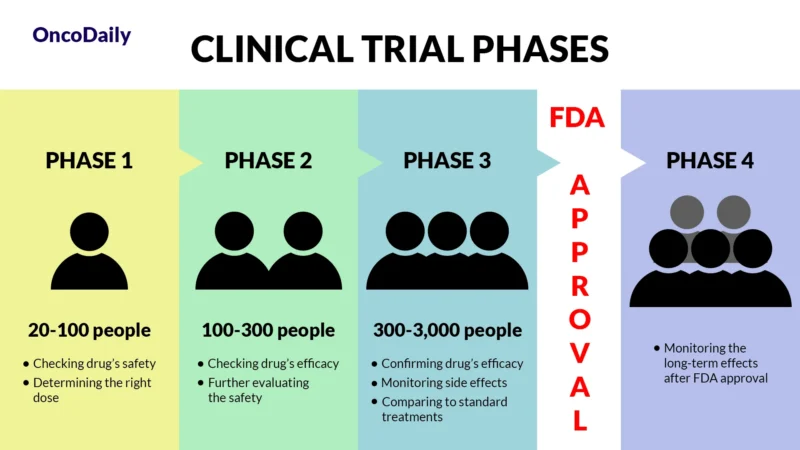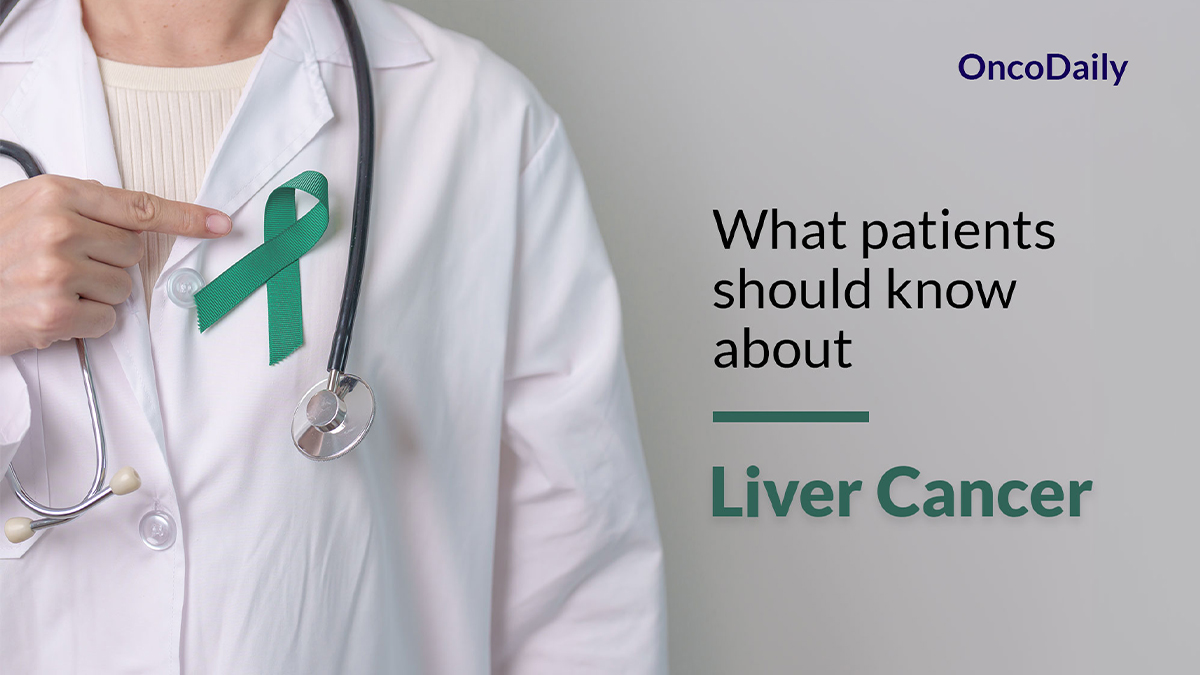Cabozantinib is a targeted therapy used to treat various types of cancer. This oral medication works by blocking specific proteins that help cancer cells grow and spread. It is approved by the U.S. Food and Drug Administration (FDA) for several cancers, including advanced kidney cancer, liver cancer, thyroid cancer, and recently, neuroendocrine tumors. This article explains how cabozantinib works, its approved uses, the possible side effects, how it is taken, and what patients can expect during treatment.
What is Cabozantinib and How Does it Work?
Cabozantinib, marketed under brand names Cabometyx (tablets) and Cometriq (capsules), is a type of drug called a tyrosine kinase inhibitor (TKI). In simple terms, it helps slow down or stop cancer growth by interfering with signals inside cancer cells that promote their growth. It blocks several proteins involved in this process, including VEGFR, MET, and AXL. These proteins are involved in cancer cells growing, forming blood vessels to supply nutrients, and spreading to other parts of the body. By stopping these actions, cabozantinib helps to:
- Slow down cancer cell growth
- Cut off the blood supply to the tumor
- Prevent the cancer from spreading to other areas of the body
This makes cabozantinib a valuable treatment for many advanced cancers.
Photo from researchgate.net
What Cancers Does Cabozantinib Treat?
Cabozantinib is FDA-approved for several cancers, especially those that are advanced and difficult to treat. Here’s a breakdown of the cancers it is approved for:
- Advanced Renal Cell Carcinoma (RCC) – In 2016, cabozantinib was approved to treat kidney cancer that has spread or is no longer responding to other treatments.
- Hepatocellular Carcinoma (HCC) – In 2019, it was approved for liver cancer that has not responded to the drug sorafenib.
- Differentiated Thyroid Cancer (DTC) – Approved in 2021 for patients with thyroid cancer that doesn’t respond to radioactive iodine treatment.
- Neuroendocrine Tumors (NETs) – In 2025, the FDA approved cabozantinib for advanced pancreatic and extra-pancreatic neuroendocrine tumors (NETs) that can’t be surgically removed.

Learn more about Neuroendocrine Tumors: The Silent Cancer on the Rise – Breakthroughs in Diagnosis, Treatment, Survival and Latest 2025 Reaserches on OncoDaily.
What Is a Clinical Trial and Why Does It Matter?
A clinical trial is a research study designed to test new drugs and treatments in patients to determine their safety and effectiveness. Before Cabozantinib was approved, it went through multiple phases of clinical trials to assess how well it worked, what side effects it caused, and whether it was better than existing treatments. Clinical trials are essential because they provide scientific evidence that a drug can help patients while ensuring it is safe for widespread use.

What Does FDA Approval Mean?
When a drug receives FDA approval, it means that after rigorous testing in clinical trials, it has been shown to be both safe and effective for treating a specific condition. This approval makes the drug widely available for doctors to prescribe and helps patients access new, cutting-edge treatments sooner.
Efficacy and Results from Clinical Trials
Cabozantinib has shown promising results in various clinical trials, providing improved survival and disease control for patients with difficult-to-treat cancers. Here are some highlights:
Cabozantinib for Kidney Cancer
Cabozantinib has shown strong benefits for people with advanced kidney cancer, especially after previous treatments stop working. In a major study called the METEOR trial, patients who took cabozantinib lived longer without their cancer getting worse—7.4 months compared to just 3.8 months for those taking everolimus. More patients responded to treatment (21% vs. 5%), and overall survival was also improved. While side effects were common, most were manageable with dose changes.
Cabozantinib is also approved as a first treatment for advanced kidney cancer when combined with nivolumab (an immunotherapy drug). In the CHECKMATE-9ER trial, this combination more than doubled the time patients lived without their cancer progressing—16.6 months compared to 8.3 months with standard treatment—and led to a higher response rate. Side effects like diarrhea, fatigue, and high blood pressure were common but generally manageable.
Cabozantinib for Liver Cancer
For patients with liver cancer that had already been treated with sorafenib, cabozantinib offered another option. In the CELESTIAL trial, it helped patients live longer (10.2 months vs. 8.0 months with placebo) and delayed disease progression (5.2 months vs. 1.9 months). A small number of patients saw their tumors shrink. Side effects like hand-foot syndrome, fatigue, and high blood pressure were more frequent but expected with this type of treatment.

Read about Liver Cancer: What patients should know about on OncoDaily.
Cabozantinib for Thyroid Cancer
Cabozantinib is also used for a type of thyroid cancer that doesn’t respond to radioactive iodine and has already been treated with other targeted therapies. In the COSMIC-311 trial, it delayed cancer progression significantly compared to placebo. While some patients had tumor shrinkage, the main benefit was in slowing disease progression. Side effects like hand-foot syndrome, fatigue, and high blood pressure were common but could be managed.
Cabozantinib for Neuroendocrin Tumors
Cabozantinib has also proven helpful in treating rare cancers called neuroendocrine tumors, including those from the pancreas (pNET) and other locations (epNET). In the CABINET trial, it significantly delayed cancer progression. For pancreatic NETs, it extended PFS to nearly 14 months compared to just over 3 months with placebo. In extra-pancreatic NETs, PFS was 8.5 months vs. 4.2 months. Although the study is still collecting final survival data, these results led to FDA approval in March 2025.

You can read about Pancreatic Neuroendocrine Tumors Overview: Comprehensive 2025 Insights on OncoDaily.
What is the Dose for Cabozantinib?
Cabozantinib is a cancer medicine taken by mouth to treat kidney, liver, thyroid, and neuroendocrine tumors. It comes in two forms: Cabometyx tablets and Cometriq capsules, and each is used for different types of cancer—so they should not be swapped.
- Cabometyx is usually taken at 60 mg once a day for most cancers, including kidney cancer, liver cancer, and thyroid cancer.
- Cometriq is used for medullary thyroid cancer and is taken at a higher dose of 140 mg daily.
- For kidney cancer, cabozantinib is sometimes used with nivolumab, at a lower dose of 40 mg daily.
If side effects like diarrhea, high blood pressure, or skin problems occur, the doctor may reduce the dose to 40 mg or 20 mg.
How to take Cabozantinib?
Cabozantinib should be taken on an empty stomach—at least 1 hour before or 2 hours after eating. It should not be crushed or chewed. Grapefruit and St. John’s wort should be avoided, as they can affect how the drug works.
If a dose is missed and it’s less than 12 hours before the next one, it should be skipped. The medication should be stored at room temperature.

Read more about Kidney Cancer: Symptoms ,Causes, Stages, Diagnosis and Treatment on OncoDaily.
Cabozantinib Side Effects and How They Are Managed
Cabozantinib (known by the brand names Cabometyx or Cometriq) is a medication used to treat several types of cancer, including thyroid, kidney, and liver cancer. While it is effective, like all cancer treatments, it can cause side effects. These side effects can range from mild to more serious, but with the right management, many can be controlled.
Common side effects
- Fatigue (Tiredness): Feeling very tired is a common side effect for many patients, with around 80% experiencing it. To manage this, it’s important to rest and adjust daily activities to match energy levels.
- Diarrhea: Many people taking cabozantinib experience diarrhea. This can be treated with medications to reduce it, and staying hydrated is essential.
- Nausea: Nausea can also occur, but it can be managed with anti-nausea medications. Eating smaller, more frequent meals throughout the day may also help.
- High Blood Pressure: Cabozantinib may raise blood pressure in some patients, so it’s important to check blood pressure regularly. If needed, medications to control blood pressure can be prescribed.
- Mouth Sores (Stomatitis): Painful sores in the mouth may appear. Using mouth rinses, keeping good oral hygiene, and following any treatment advice from your doctor can help reduce the pain.
- Hand-Foot Syndrome: This condition causes pain, redness, and swelling on the hands and feet. Moisturizers can help, and wearing comfortable shoes to avoid pressure on the feet is important. If it becomes severe, your doctor may adjust the medication dose.
Patients might also notice a loss of appetite, weight loss, skin rashes, or changes in hair color and taste. Regular blood tests will help monitor calcium, phosphate, and albumin levels.
Less Common, More Serious Side Effects
- Blood Clots: In rare cases, cabozantinib can increase the risk of blood clots. If there is swelling, redness, pain in the legs, or sudden shortness of breath, patients should seek immediate medical help.
- Gastrointestinal Issues: Serious stomach problems, like perforations or fistulas, are rare but serious. Severe stomach pain or vomiting should be reported to a doctor right away.
- Bleeding: Some patients may experience bleeding, such as nosebleeds or bruising. Any unusual bleeding, like blood in stool or urine, should be reported to the doctor immediately.
- Thyroid Problems: Cabozantinib can affect thyroid function, leading to conditions like hypothyroidism. Your doctor will monitor your thyroid levels regularly.
- Blood Count Changes: Cabozantinib may affect blood counts, leading to low white blood cells, low platelets, or anemia. These changes can make patients more prone to infections or bleeding, so blood counts will be checked regularly.
By working closely with the healthcare team, most side effects can be managed, ensuring patients can continue to benefit from treatment.

What to Expect Long-Term?
Cabozantinib can significantly help control cancer over time, but it is not a cure. The goal of treatment is to manage the cancer, extend life, and improve quality of life. Clinical trials have shown that it can be effective for months or even years, depending on the cancer type and individual response.
What Should You Avoid During Treatment?
During cabozantinib treatment, it’s important to be mindful of certain precautions to ensure the medication works well and to reduce the risk of side effects.
Cabozantinib is processed in the body by a protein called CYP3A4, so it can interact with other medications. Strong CYP3A4 inhibitors should be avoided because they can raise cabozantinib levels, potentially causing more side effects. Similarly, medications that strongly or moderately increase CYP3A4 activity should also be avoided, as they can lower the effectiveness of cabozantinib. If taking these medications is absolutely necessary, your doctor may adjust your cabozantinib dosage accordingly.
Cabozantinib and pregnancy
Cabozantinib can also harm an unborn baby, so it should not be used during pregnancy. Women must confirm they are not pregnant before starting treatment, and those who can become pregnant are advised to use reliable contraception during treatment and for 4 months after the last dose. The medication may also affect fertility in both men and women.
Additionally, while the effects of cabozantinib on breast milk are not fully known, it is recommended that women do not breastfeed during treatment and for 4 months after stopping the medication, as there could be risks to the infant.
By following these guidelines, patients can help manage their treatment safely and effectively.
Real-Life Effectiveness
In real-world settings, cabozantinib has helped many patients manage their cancer and improve their quality of life, especially those with cancers that have few other treatment options. Feedback from patients in clinical trials and treatment settings has been largely positive, with many appreciating its potential to manage even advanced stages of cancer.
What Other Trials Are Ongoing?
Cabozantinib is being studied in several clinical trials to see how well it works in combination with other treatments or in cancers where current options are limited.
One trial (NCT06900595) is testing cabozantinib with cemiplimab in people with advanced or hard-to-remove adrenal cancer. Researchers want to know if this combination can help patients live longer without their cancer worsening.
Another trial (NCT06811116) is looking at sapanisertib plus cabozantinib for liver cancer with a specific gene mutation (β-catenin). The study aims to find the best dose and see if this combo can delay cancer progression more effectively.
A third study (NCT06535737) is testing cabozantinib in liver cancer patients who have already been treated with atezolizumab and bevacizumab. This trial is important because there are currently no proven treatments after those drugs.
Looking Ahead – The Future of Cabozantinib
Ongoing research continues to explore new ways cabozantinib can be used to treat more types of cancer or in combination with other therapies. Its role in the treatment of cancers like breast and lung cancer is still being investigated, offering hope for more patients in the future.
In Conclusion, Cabozantinib is a powerful treatment option for several advanced cancers. With its ability to target cancer’s molecular drivers, it helps slow the progression of cancer, improving survival and quality of life for many patients. If you or a loved one is considering cabozantinib, it’s important to discuss the potential benefits and side effects with your healthcare team. With continued research, this drug may offer even more options for cancer treatment in the future.
If you’re a healthcare provider, access the professional version here.


